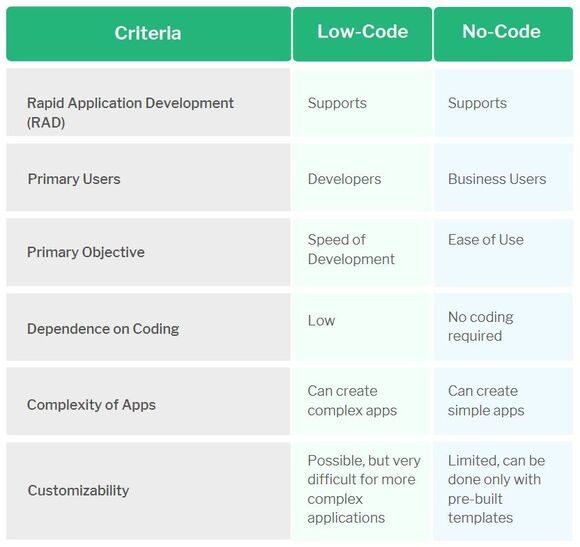According to Gartner, over 50% of all medium and large-scale organizations will use a low-code development platform in the upcoming years as one of their primary application platforms.
Editor's Note: This article is excerpted from the white paper, Low-code Buyer's Guide for Enterprise Application Development available for download in the MC Press White Paper Center.
Undeniably, the need for a faster and more reliable method to build an application is at its peak.
The conventional application development method, which is slow and cumbersome, doesn't work anymore. Making an application without having to spend a lot of money is what most newbies and successful businesses seek. An excellently designed application that addresses all the IT needs of a company has the potential to turn around the fortune of a struggling business.
Development of high-end enterprise applications without much hassle is only possible with a professional low-code platform. By determining the requirements, creating an application accordingly, and automating workflows quickly, developers can build a flexible and scalable application. As the experts in this industry, LANSA has shouldered the responsibility of helping developers find the right tool.
In this guide, you will learn everything about low-code platforms and why they are a vital option for your application development.
What are Low-code Application Development Platforms?
Low-code software development platforms enable professional developers, power users, and citizen developers to build, test, and deploy high-end applications through visuals, requiring little to no coding. Low-code application development platforms are perfect for rapid application development (RAD) because of features like drag and drop designers, prototyping wizards, and more.
How is Low-code Different from Traditional Application Development Methods?
Traditional application development methods rely on written code and the use of programming languages, while low-code adopts a visual development approach. It uses model-driven logic, a user-friendly graphic interface, and drag-and-drop components to democratize development. This platform enables developers of all levels to create both web and mobile applications with ease.
Also, when developers build applications with traditional methods, they will have to consider developing for various devices, environments, and systems. It includes writing dedicated code for a wide range of parts in the application. Further, these need to be supplemented with custom functionalities.
On the other hand, with a low-code development platform, developers do not have to write lengthy code to build an application. A reason for this is that applications made using these platforms are designed to work seamlessly across various operating systems. Moreover, certain platforms offer tools to manage errors and requirements.
Low-code vs. No-code: A Brief Comparison
It is no secret that no-code platforms are ideal for non-technical users. This is because with no-code platforms, one doesn't have to write a single line of code throughout the development process of the whole enterprise application.
To understand the difference between these platforms, refer to the comparison table below:
Is Low-code a Viable Option for Enterprise Application Development?...
Want to learn more? Download the complete white paper, Low-code Buyer's Guide for Enterprise Application Development for free from the MC Press White Paper Center. today. Don't miss this important resource.














 Business users want new applications now. Market and regulatory pressures require faster application updates and delivery into production. Your IBM i developers may be approaching retirement, and you see no sure way to fill their positions with experienced developers. In addition, you may be caught between maintaining your existing applications and the uncertainty of moving to something new.
Business users want new applications now. Market and regulatory pressures require faster application updates and delivery into production. Your IBM i developers may be approaching retirement, and you see no sure way to fill their positions with experienced developers. In addition, you may be caught between maintaining your existing applications and the uncertainty of moving to something new. IT managers hoping to find new IBM i talent are discovering that the pool of experienced RPG programmers and operators or administrators with intimate knowledge of the operating system and the applications that run on it is small. This begs the question: How will you manage the platform that supports such a big part of your business? This guide offers strategies and software suggestions to help you plan IT staffing and resources and smooth the transition after your AS/400 talent retires. Read on to learn:
IT managers hoping to find new IBM i talent are discovering that the pool of experienced RPG programmers and operators or administrators with intimate knowledge of the operating system and the applications that run on it is small. This begs the question: How will you manage the platform that supports such a big part of your business? This guide offers strategies and software suggestions to help you plan IT staffing and resources and smooth the transition after your AS/400 talent retires. Read on to learn:
LATEST COMMENTS
MC Press Online